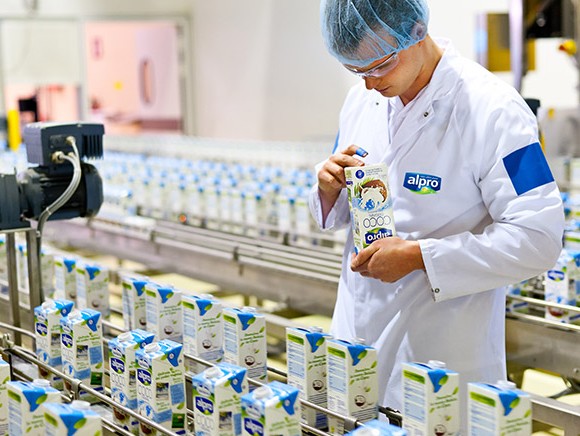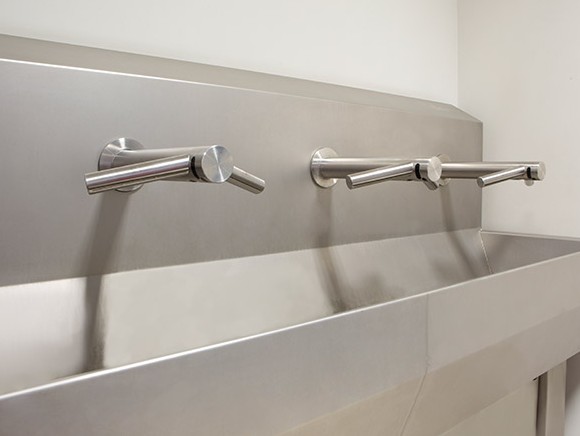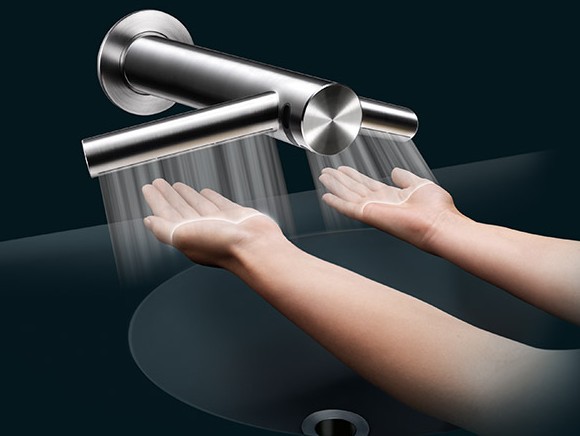
Alpro first started producing soya-based drinks as a sustainable alternative to dairy products in 1979. As a pioneer in this industry, the company finds it important to be able to operate at the highest level. “The quality of not only our products but also our production processes is crucial,” says Gert Fransen, International Quality Director at Alpro.
The Belgian town of Wevelgem is home to one of Alpro’s main production facilities, where products including Alpro’s soya-based drinks are manufactured, packed and dispatched every day. Sustainability is in the company’s DNA. Alpro wants to improve the world’s eating habits by creating tasty, naturally healthy plant-based products that optimally contribute to everyone’s well-being and that are produced with the utmost respect for the planet. In this way, the organisation hopes to help plant-based food and drink products to become mainstream. The focus on quality in its products is carried through to the company’s hygiene process too.
Fransen: “When designing our hygiene areas, we went in search of solutions that leave nothing to chance. We completely adapted the infrastructure and clothing, and at every point where people exit changing rooms, a canteen, toilet facilities or other non-production zones, they have to pass through a hygiene sluice. There’s no way around it, so they are forced to wash their hands and disinfect. In certain areas, their shoes are also cleaned too. A fast throughput is important, of course; we can’t have queues forming and leading to people being late for work. We found the perfect partner for this process in Elpress.” Jannes Voss, General Manager of Elpress: “We were excited to be asked to design the hygiene process for Alpro: a leading organisation which, like us, puts a high value on quality and sustainability.”
One part of that hygiene process is the EWG-TAP, an ergonomic stainless-steel wash basin combined with an integrated Dyson Airblade™ Tap hand dryer. Elpress, a manufacturer specialised in hygiene in the food industry, launched the innovation last year in partnership with Dyson. This integrated solution means that fewer actions are required and keeps the hand-washing and drying process moving faster and more efficiently. The solution has already been widely implemented within companies with strict hygiene standards, such as Plukon Food Group, the Kellogg’s Pringles plant and Sus Campiniae.
Dyson first introduced its Airblade hand dryers ten years ago as a sustainable alternative for the ubiquitous paper hand towels. The Airblade hand dryers are still gaining ground today, despite resistance from the paper industry. “Ever since the launch of the Airblade, the paper industry has been attempting to influence public opinion by using misleading research to call the hygiene of the Airblade into doubt,” comments Rienk Kentie, Marketing Manager at Dyson. “This has had little impact in the food industry because, in this sector, professionals tend to pay more attention to certifications such as HACCP and the advice of independent experts. But in other sectors we are seeing some people allowing themselves to be swayed by the paper industry’s misleading communication. Furthermore, research that has not been financed by the paper industry repeatedly shows the Airblade technology to be just as hygienic as paper hand towels.” When it comes to sustainability, however, there is a huge difference.

The Carbon Trust has calculated that Dyson’s Airblade hand dryers produce as much as 80 percent less CO2 per drying session than paper hand towels. In addition, there are significant savings in terms of operational costs, which can amount to between EUR 1,000 and EUR 1,500 a year for each drying point. Based on the Airblade™ technology, the Airblade Tap blows unheated, filtered air at a speed of 690 km/h onto people’s hands; they are literally ‘scraped’ dry in the space of 12 seconds. Clive Withinshaw, director of the food science organisation HACCP International, explains: “The technology tackles a number of risks that used to be present in old-style hand dryers. This device is easy to clean and works without someone first having to touch a button. On top of that, it dries hands quickly. Thanks to the integration of the HEPA filter these functions are combined to substantially reduce the risk of microbiological contamination¬. As a result it complies with HACCP International’s non-food product certification scheme.”

The new hygiene area has now been in use at Alpro for the past 18 months, to everyone’s satisfaction. Voss: “Our partnership with Dyson dates back several years. We’re keen to work together to take sustainable hygiene to the next level. We see the fact that Alpro is satisfied with this hygiene solution as a nice affirmation of our current quality and encouragement for the future.”
Source: © Alrpo, Elpress en Dyson